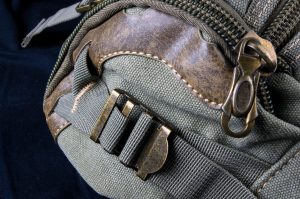Nylon Webbing
Nylon is a highly versatile fibre which is often used for military webbing but is also suitable for many other uses.
Originally known as polyamide, this fibre is now referred to more commonly by the brand name created by ICI, of Nylon. Nylon was the first commercially available synthetic fibre known for specific advantages such as high colour retention, high tensile strength and durability.
The abrasion resistance of Nylon webbing makes it ideal for applications where mechanical stress may occur. As one of the most wear-resistant fibres available, it is ideal for use in climbing slings, PPE, harnesses, camping and rock-climbing equipment.
A further benefit of Nylon is its performance when exposed to water. Nylon does not swell, shrink or deteriorate when exposed to water for longer periods of time. This feature makes it a popular choice for applications in the outdoor and leisure sector. However, it is important to note that Nylon does not float and, because water acts as a plasticiser on Nylon fibre, the fibres will stretch when wet, so this must be taken into account for marine applications.





